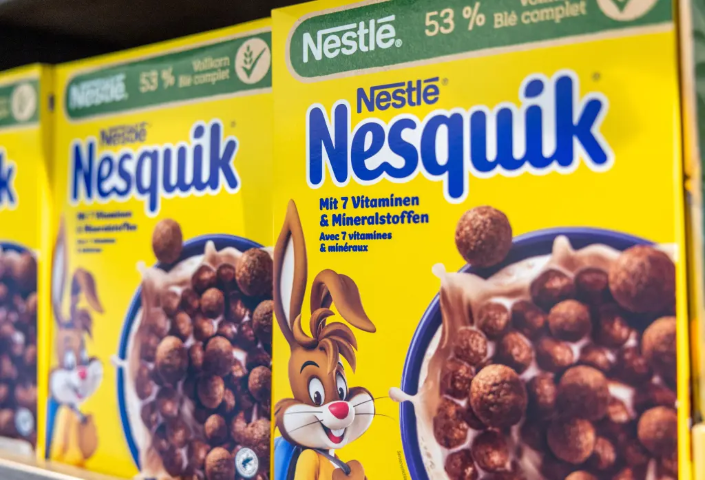
Nestlé's stock fell 4.5% as its 7.2% organic sales growth missed estimates. Inflation pressures and a 1.5% sales drop to $105.54B were noted. (Reuters)
Nestlé, the Swiss multinational known for KitKat chocolate bars and Häagen-Dazs ice cream, experienced a 4.5% drop in its stock price on Thursday. This decline followed the release of growth figures that fell short of expectations, indicating that inflation is impacting the company's profitability.
According to Nestlé, it anticipates organic sales growth of approximately 4% in 2024, with a "moderate increase" in its underlying trading operating profit margin. Organic sales, which exclude currency fluctuations and acquisitions, increased by 7.2% in the year ending December 31. This figure was below analysts' expectations of 7.4%.
Nestlé's full-year sales decreased by 1.5% to about $105.54 billion, missing the projected $106.32 billion. The company's 7.5% price hikes for the year met the average analyst forecast. However, real internal growth, or sales volumes, fell by 0.3% for the year, compared to an anticipated 0.1% decline. Sales volumes in the fourth quarter showed a slight increase of 0.4%.
Bernstein analyst Bruno Monteyne commented that Nestlé's year-end performance was disappointing, especially considering the company's guidance for 2024 organic growth of 4.0%, which is below the current consensus of 4.9%. The guidance for a moderate margin increase may also put pressure on the current (margin) consensus of 17.7%.
Despite these challenges, Nestlé's net profit increased by approximately 20% to $12.76 billion.
In contrast, Nestlé's competitor, French food conglomerate Danone, saw its shares rise after reporting strong sales numbers. Danone, known for brands like Evian and Badoit water, reported $29.84 billion in sales last year, a 7% increase year over year. The operating margin for full year 2023 rose to 12.6% of sales from 12.2% in 2022, compared with average analysts' estimates of 12.5%.
For the fourth quarter ended December 31, Danone's sales grew 5.1%, slightly above market estimates of 5%, with contributions from all its three businesses – EDP, Specialized Nutrition, and Waters. Like Nestlé and Unilever, Danone has raised prices to manage higher commodity and supply chain costs.
Separately, Ghana's government announced that the country's cocoa output is expected to be almost 40% below a target of 820,000 metric tons. Factors contributing to this shortfall include strong seasonal winds, a lack of rain, smuggling, damage from illegal gold mining, and swollen shoot disease. The production deficits in Ghana and Ivory Coast have led to historic surges in global cocoa prices, with traders anticipating even wider deficits this season and growing concerns for the next.
On Thursday, London cocoa futures on ICE surpassed the psychological 5,000 pound barrier, while New York cocoa exceeded the $6,000 mark.















